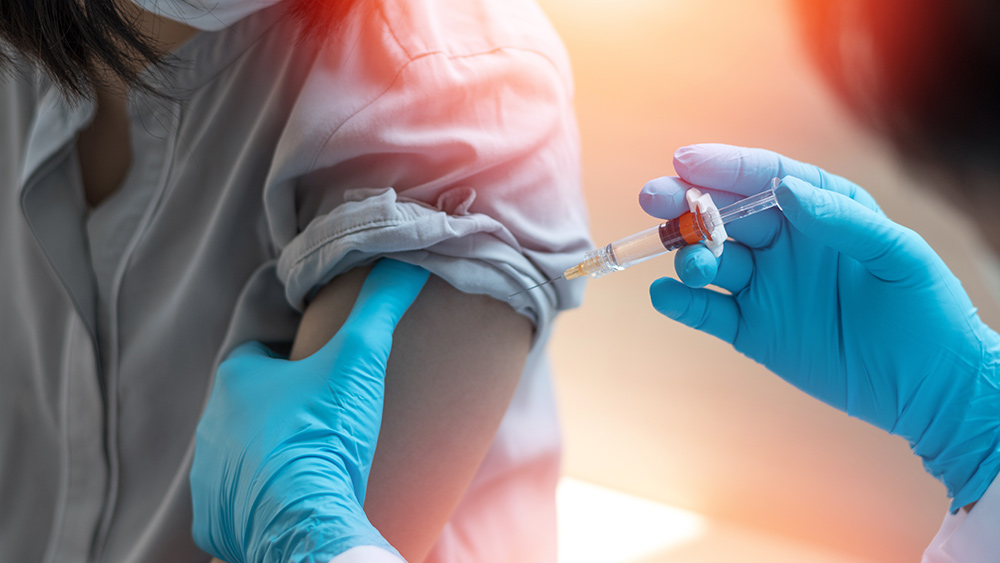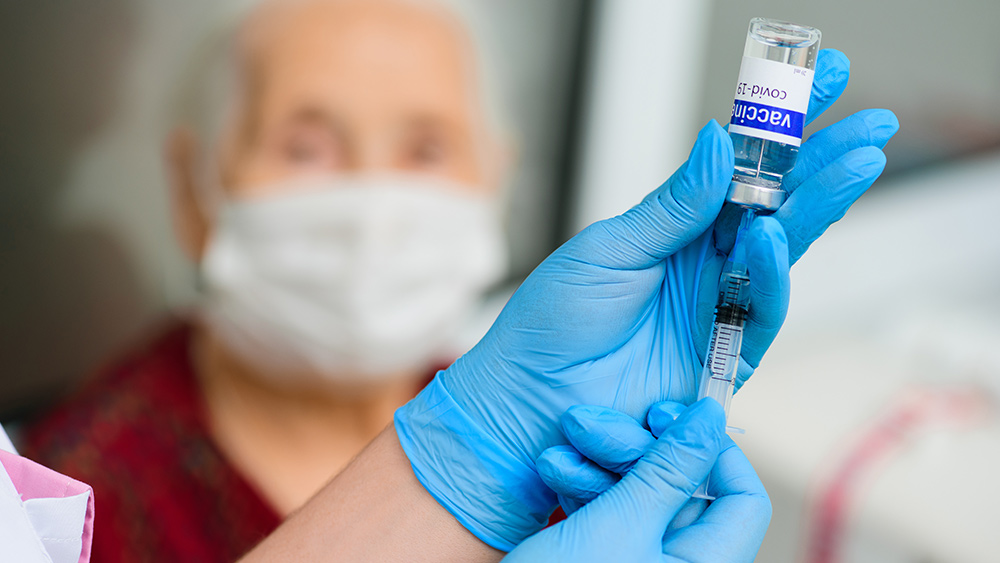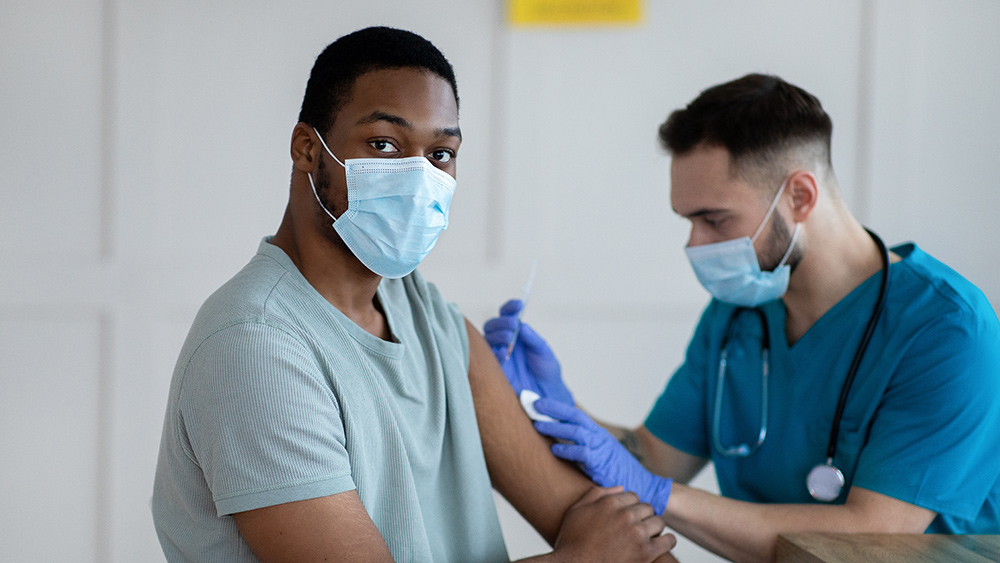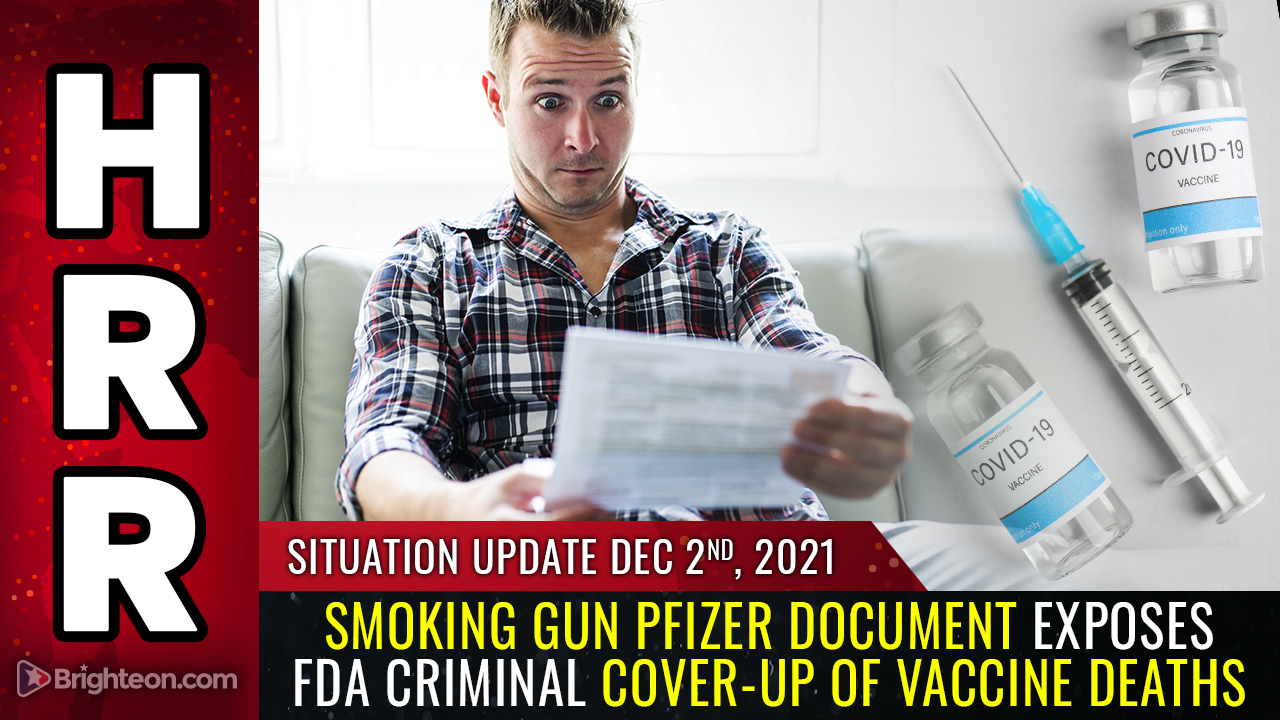Merck gives up trying to make coronavirus vaccine after total failure
01/27/2021 / By Ethan Huff

After accepting $356 million in taxpayer money from the Trump administration to develop a fast-tracked Wuhan coronavirus (COVID-19) vaccine under “Operation Warp Speed,” Merck & Co. has reportedly decided to throw in the towel and move on to other endeavors.
Two different vaccine candidates that Merck had been working on both failed, generating very little, if any, immune response in test patients. Consequently, both projects were scrapped.
Rather than attempt to develop any more potential vaccine candidates, Merck will now focus on two other types of treatments for the novel virus that as of now have not been approved by federal regulators.
Last fall, Merck announced that early-stage trials had been launched for a potential Chinese virus vaccine that would have required only one injection dose. The Chinese virus vaccines currently being administered by Pfizer-BioNTech and Moderna both require two doses – and Moderna is now saying that it will have to develop a third dose in order to increase the “efficacy” of the first two.
Moderna’s vaccine drive in California recently had to be halted after a “disturbing number” of those injected developed severe reactions after getting jabbed.
Why get vaccinated when vitamin C cures viruses naturally?
Both the Moderna and Pfizer-BioNTech jabs received “emergency approval” late last year from the U.S. Food and Drug Administration (FDA). Several other potential candidates, including a single-dose jab from Johnson & Johnson (J&J), could soon receive similar approval once trial results are published.
Some 22 million doses of Pfizer-BioNTech and Moderna vaccines have already been administered since their official release back in December. Nearly six percent of the U.S. population has now received at least one dose of one of the vaccines, the U.S. Centers for Disease Control and Prevention (CDC) is reporting.
Roughly 3.2 million people, or one percent of the population, are said to have received both doses of one or the other vaccine, completing their vaccination process as recommended by Anthony Fauci and the vaccines’ manufacturers.
Even though all potential Merck vaccines are now defunct, the FDA could still grant emergency approval for other treatments being developed by the company. As many as 100,000 doses of Merck’s alternative “remedies” could be available for distribution by June 30.
Merck’s MK-7110 treatment candidate is said to have the potential to minimize the damaging effects of an overactive immune response to the Chinese virus, also known as a cytokine storm. Such an immune response can complicate “the lifesaving efforts of doctors and nurses” caring for Wuhan coronavirus (COVID-19) patients at hospitals.
Nick Kartsonis, senior vice president of clinical research for infectious diseases and vaccines at Merck Research Laboratories, said the results thus far with all of the company’s potential remedies have been “disappointing” and “a bit of a surprise.”
“Both shots generated fewer neutralizing antibodies than other vaccines and produced inferior immune responses compared with people who had naturally contracted the coronavirus,” reports Zero Hedge, quoting Kartsonis who admitted that the company “didn’t have what [it] needed to be able to move forward.”
News of the vaccine failures sent Merck’s shares plummeting nearly two percent.
Merck’s approach to vaccine development under Operation Warp Speed utilized a more “traditional” approach, borrowing from its deadly measles vaccine. Its V590 candidate, as one example, is based on technology that is already used in Merck’s Ebola vaccine.
As pointed out by numerous Zero Hedge commenters, there is already a cure for the Wuhan coronavirus (COVID-19), and all other viruses, for that matter: vitamin C.
“Vitamin C is cheap and easily made and it cures 100 percent of the time,” one of them wrote.
More of the latest news about the Wuhan coronavirus (COVID-19) can be found at Pandemic.news.
Sources for this article include:
Tagged Under: China, coronavirus, covid-19, failure, measles, Merck, vaccination, vaccine
RECENT NEWS & ARTICLES
COPYRIGHT © 2017 SCIENTIFIC NEWS





















